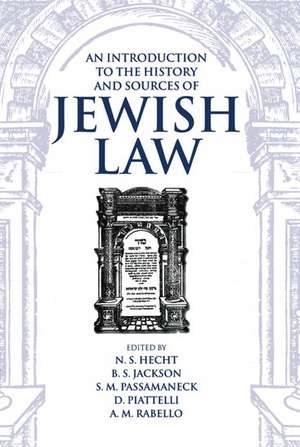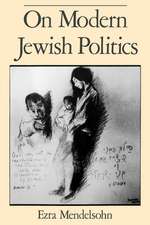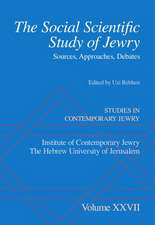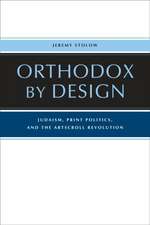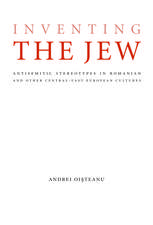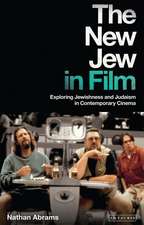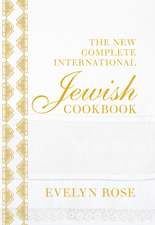An Introduction to the History and Sources of Jewish Law
Editat de N. S. Hecht, B. S. Jackson, S. M. Passamaneck, Daniela Piattelli, Alfredo Rabelloen Limba Engleză Hardback – 28 mar 1996
| Toate formatele și edițiile | Preț | Express |
|---|---|---|
| Paperback (1) | 423.15 lei 31-37 zile | |
| OUP OXFORD – 28 mar 1996 | 423.15 lei 31-37 zile | |
| Hardback (1) | 545.69 lei 31-37 zile | |
| OUP OXFORD – 28 mar 1996 | 545.69 lei 31-37 zile |
Preț: 545.69 lei
Preț vechi: 819.55 lei
-33% Nou
Puncte Express: 819
Preț estimativ în valută:
104.43€ • 108.62$ • 86.21£
104.43€ • 108.62$ • 86.21£
Carte tipărită la comandă
Livrare economică 03-09 aprilie
Preluare comenzi: 021 569.72.76
Specificații
ISBN-13: 9780198262268
ISBN-10: 0198262264
Pagini: 484
Dimensiuni: 162 x 242 x 32 mm
Greutate: 0.84 kg
Editura: OUP OXFORD
Colecția OUP Oxford
Locul publicării:Oxford, United Kingdom
ISBN-10: 0198262264
Pagini: 484
Dimensiuni: 162 x 242 x 32 mm
Greutate: 0.84 kg
Editura: OUP OXFORD
Colecția OUP Oxford
Locul publicării:Oxford, United Kingdom
Recenzii
'a book that not only succeeds eminently in satisfying a general educational purpose but also innovative amd enriching the approach it adopts and in the insight it provides...this books represents an outstanding attempt to illustrate and explain the creation and evolution of those categories in a way which is accessible to the non-specialist reader. The researcher who is not fluent in Hebrew will find the bibliographies at the end of the chapter extremely useful.'
